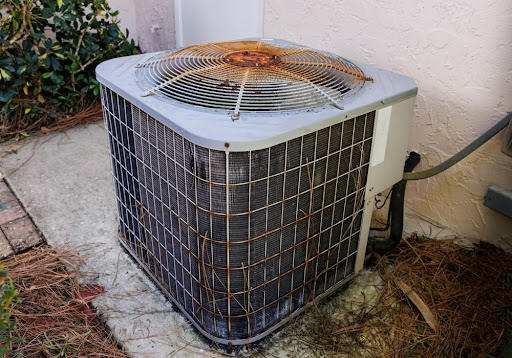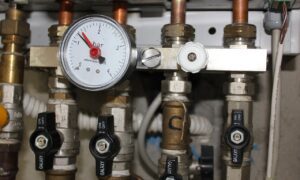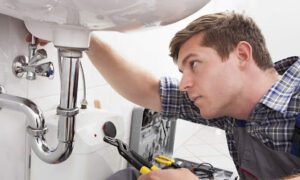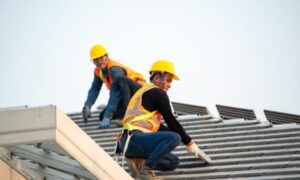The Importance of Timely Heating Repair for Energy Efficiency
A functional heating system keeps your home warm, comfortable, and safe whenever the temperature drops. However, unaddressed wear and tear can compromise heating systems, leading to decreased performance and inefficiency. Timely heating repair is crucial for your home. Here, we explore why you should stay on top of HVAC services in Cuyahoga Falls, OH.
Why Timely Heating Repairs Matter
Delaying heating repairs can lead to a cascade of problems, both financially and environmentally. Here’s why acting promptly is so important:
1. Energy Efficiency
A well-maintained heating system uses energy efficiently, keeping your utility bills in check. Issues like malfunctioning thermostats, clogged filters, or dirty burners force the system to work harder, consuming more energy to achieve the same output. HVAC repair allows for prompt restoration of efficiency and waste reduction.
2. System Longevity
Small problems, if left unresolved, can escalate into major malfunctions. For example, strange noises or reduced airflow might seem minor but can signify deeper issues like failing components or blockages. Timely repairs prevent cumulative damage and extend the life of your heating system.
3. Comfort and Safety
A malfunctioning heating system can struggle to maintain consistent temperatures, leaving your home uncomfortably cold. In worse scenarios, it can pose safety risks, such as carbon monoxide leaks or electrical hazards. Addressing issues promptly ensures your home remains safe during the winter months.
How Timely Repairs Lead to Energy Efficiency
Timely repairs keep your system operating at peak performance. Here’s how:
1. Addressing Common Efficiency Killers
Timely repairs resolve key issues that hinder energy efficiency:
- Clogged Filters: Dirty filters restrict airflow, forcing the system to overwork.
- Thermostat Malfunctions: A faulty thermostat misreads temperatures, causing the system to run unnecessarily.
- Leaky Ductwork: Cracks and holes in ducts waste heated air, reducing efficiency.
2. Preventing Overworking
When components like motors, fans, or heat exchangers are damaged, the system compensates by running longer or harder. This not only increases energy consumption but also accelerates wear and tear. Repairs are key to keeping your heating and all parts working harmoniously, optimizing energy use.
3. Environmental Impact
Heating systems that consume excessive energy contribute to higher carbon emissions. By maintaining an efficient system through timely repairs, you reduce your household’s carbon footprint and contribute to environmental sustainability.
Signs You Need Heating Repairs
Knowing when to seek heating repairs can keep unnecessary stress and expenses at bay. Watch out for these warning signs:
- Unusual Noises: Banging, rattling, or whistling sounds often indicate loose or failing components.
- Weak or Uneven Airflow: If certain rooms feel colder than others, it could point to ductwork or blower issues.
- Higher Energy Bills: A sudden spike in utility costs might indicate inefficiencies.
- Frequent Cycling: If your system frequently turns on and off, there may be an issue with the thermostat or electrical components.
- Foul Odors: Issues like burning smells or gas odors require immediate attention.
What Happens If You Delay Repairs?
Ignoring heating system repairs can lead to irreversible consequences. Here’s what could happen:
1. Increased Repair Costs
Problems like worn-out belts or dirty burners can lead to expensive repairs. Remember, maintenance is more affordable than an emergency HVAC installation.
2. System Failure
Continued neglect can lead to a complete breakdown, leaving you without heat during critical times. Replacing a failed system is significantly more expensive than maintaining it.
3. Higher Energy Bills
An inefficient system consumes more energy to meet your heating needs, leading to inflated utility bills.
4. Safety Risks
Malfunctioning heating systems can create safety hazards, including fire risks or carbon monoxide leaks, endangering your home and family.
How to Stay on Top of Heating Repairs
Proactive measures can help you avoid emergency repairs and maintain energy efficiency:
1. Schedule Regular HVAC Maintenance
Experts can identify and assess issues during inspections. This is especially important for resolving problems before they escalate.
2. Replace Filters Frequently
Clean filters improve airflow and efficiency. Depending on usage, filters should be replaced every 1–3 months.
3. Monitor Energy Bills
A sudden increase in energy consumption could signal a problem with your heating system. Investigate promptly to address the root cause.
4. Respond to Warning Signs
Don’t ignore unusual sounds, smells, or performance issues. Acting early prevents minor problems from snowballing.
Timely heating repair is key to safeguarding your home against the elements. Delaying repairs might seem like a cost-saving move, but it often leads to greater expenses and risks in the long run. Whether replacing a clogged filter, fixing a faulty thermostat, or addressing airflow issues, repairs go a long way in preserving system performance.



































